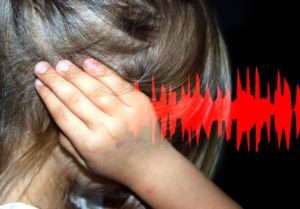
Best Time to Work Out: Morning vs. Evening

Get access to everything we publish when you
sign up for Outside+.
Not everyone has the luxury of deciding when they get to squeeze in their workouts amid their busy schedules. But for those who have the flexibility to choose to work out either in the mornings or the evenings, science favors workouts earlier in the day.
Why morning workouts have a leg up — and their one downfall
Mornings are apparently made for moving. “They set the tone for the rest of the day, so you tend to make healthier choices when it comes to eating,” says Brooke Van Paris, NASM- and ISSA-certified personal training manager at Life Time in Deerfield Township, Ohio.
In fact, morning workouts may hold the edge for reshaping your body. “Studies allude to improved fat burning if you do cardio first thing in the morning,” says Carol Espel, MS, director of fitness at Pritikin Longevity Center in Miami. Morning workouts can help you increase calorie burning throughout the day, decrease your appetite and aid in weight loss, she adds.
But the benefits don’t stop there. Surprisingly, morning workouts can yield better sleep quality, especially if you’re exercising outdoors. “Light exposure helps your circadian rhythms stay in check,” Van Paris says. “You want to mimic the natural sunrise and sunset, so if you wake up early with the sun, your body will be able to produce more melatonin at night and help you get to sleep and stay asleep longer.”
And while exercise at any time can boost mood-inducing hormones like serotonin, that boost from your morning workout will stay with you throughout the day, Van Paris says. You’ll also feel more alert and may have better cognitive functioning as a result, Espel says.
Best part about morning workouts? You won’t have the distractions, interruptions and excuses to skip a workout as you do in the evening, Van Paris says.
Of course, morning workouts come with an obvious negative: being too groggy to work out, which means you may not be able to perform as well as you’d like to.
Weighing the pros and cons of evening workouts
Don’t despair if you’re an evening exerciser because there are advantages to doing your workout at night. Start with your core body temperature, which is generally higher in the evening. “It may take less time for your body to warm up as a result,” Espel says. Higher internal temperatures may even make you less stiff and give you better mobility, Van Paris says.
Some studies even show that it can take 20 percent longer to reach the point of exhaustion if you’re exercising later in the day. “That means you may have more power and endurance in the evening,” Espel says.
For many individuals, working out in the evening also can provide the opportunity to de-stress after a crazy day. And if you’re exercising at a health club, there are usually more people logging their workouts after a day in the office, which gives you the potential to meet more people, Van Paris says.
Unlike morning workouts, though, evening workouts do come with more negatives, chief among them being that you may be so fatigued or distracted by other responsibilities that you may skip the workout altogether. And if you exercise too late, the stress hormone cortisol may spike as a result, making it more difficult to fall asleep and stay asleep, Van Paris adds.
That’s why the best time to work out is the time you’ll actually be consistent and stick with it. “Routine is most important in getting somebody committed to their exercise program,” Van Paris says. In other words, sweat whenever it’s best for you, be it morning or evening.
Published at Fri, 05 Nov 2021 06:35:37 -0700






